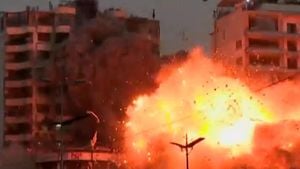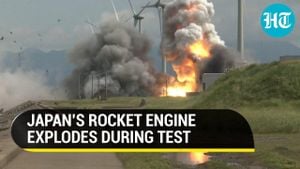Singapore is facing increasing scrutiny as discussions ramp up around the deployment of small modular reactors (SMRs) to meet its energy needs. With the country's energy strategy shifting gears, some experts and community leaders are raising alarms about Singapore potentially becoming a testing ground for these new nuclear technologies.
Small modular reactors promise significant benefits, such as producing less energy waste and using innovative cooling systems, making them attractive options for energy-poor nations or regions. Unlike traditional nuclear power plants, which are large and require extensive infrastructure, SMRs are compact and can be built off-site and shipped to their locations. This flexibility might seem appealing, especially for Singapore, which has limited land space.
Yet, with the dawn of this new technology, concerns have been voiced about safety and governance. Advocates argue for the potential of SMRs to mitigate carbon emissions and provide reliable energy sources, especially as Singapore pushes for its goals aimed at combating climate change. The government aims for net-zero emissions and has been exploring diverse renewable energy options.
Despite these ambitious goals, critics warn against the risks of adopting SMR technology without thorough oversight. Leaders from various civil society groups have urged the authorities not to allow Singapore to become "a mere test bed" for unproven nuclear technologies, highlighting the potential consequences of regulatory shortcuts.
The apprehension stems after Singapore's previous experiences with introducing advanced technological infrastructures under limited regulatory frameworks. For example, the rapid adoption of various technologies, including those related to data collection and surveillance, has met with pushback from citizens worried about privacy. Many are drawing parallels between these concerns and the push for SMR implementation, calling for transparency and comprehensive public consultations before any decisions are made.
"We need to prioritize the safety of our communities and environment over quick-fix energy solutions," commented a local environmental activist. This sentiment resonates with many residents who feel ill-equipped to engage with complex scientific and engineering concepts.
Further complicate the picture is the push for legislative reforms surrounding energy security and climate initiatives. Calls are growing for the government to clearly articulate its energy transition strategy, including how SMRs fit within this broader vision. The lack of clarity has heightened public confusion and skepticism.
Proponents of SMR technology point to countries like the United States and Canada, where SMRs have found favor as part of the energy mix. They cite momentum built from international cooperation on nuclear technology and the potential for significant advancements to strengthen energy independence. Notably, companies like Westinghouse are at the forefront, striving to bring their designs to market amid fierce competition.
Singapore's own energy mix, which has heavily relied on natural gas, is under intense scrutiny as global energy prices fluctuate and environmental concerns rise. The urgency to diversify energy production methods has made discussions of nuclear energy more prominent than ever.
While Singapore aims to establish itself as another key player on the nuclear technology frontier, eco-advocates consistently echo their call for legislative safeguards. Leaders, including local non-profit organizations, have pushed for clear protocols on community safety and energy sustainability principles.
Last month, the Ministry of Trade and Industry convened experts for a closed-door discussion on nuclear energy, signaling the government’s acknowledgment of growing public interest and concern. While details remain scarce, observers eagerly await the announcement of policies guiding SMR deployment.
Community voices are increasingly asserting the need for informed dialogue on important energy matters, urging the government to craft inclusive discussions about SMRs and other energy technologies. Activists argue this must involve everyone from scientists to everyday citizens to shape the narrative around energy decisions affecting all aspects of life.
Residents are hoping for clear directives about how safety and environmental metrics will drive the SMR conversations. They seek assurance and educational outreach as pathways toward comprehensively integrating nuclear power technologies.
While advances appear imminent, the overall energy policy debate continues to echo across town halls and community forums. The increasing discourse marks a significant moment where residents refuse to remain passive participants in discussions involving their safety and future.
With meaningful public consultations gathering momentum, the incoming decisions could mark either the beginning or the cautious deliberation of Singapore's future energy policy based on SMR technology.
For now, Singapore stands at the crossroads of energy innovation and public opinion, seeking to balance the benefits of new technology with the safety concerns of its citizens. With nuclear energy having long been seen as controversial, the potential introduction of SMRs will surely remain under the microscope as these discussions develop.
The path forward may not be clear-cut, but with the rapid advancement of new energy technologies, Singapore appears poised for conversations blending progress with precaution. Indeed, the stakes are high and so is the need for careful consideration, as the nation charts its course toward the energy future.



